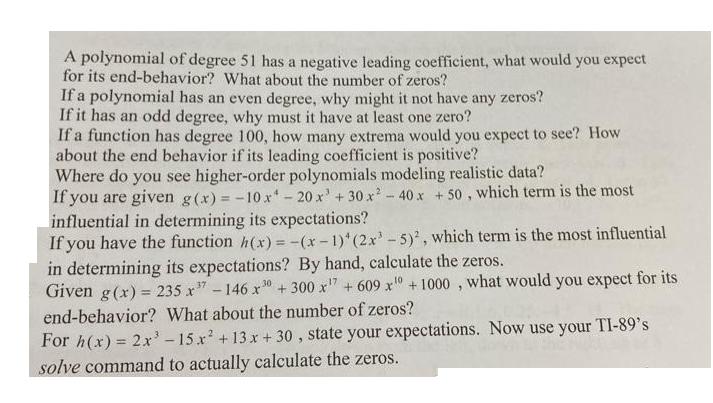Answered step by step
Verified Expert Solution
Question
1 Approved Answer
A polynomial of degree 51 has a negative leading coefficient, what would you expect for its end-behavior? What about the number of zeros? If

A polynomial of degree 51 has a negative leading coefficient, what would you expect for its end-behavior? What about the number of zeros? If a polynomial has an even degree, why might it not have any zeros? If it has an odd degree, why must it have at least one zero? If a function has degree 100, how many extrema would you expect to see? How about the end behavior if its leading coefficient is positive? Where do you see higher-order polynomials modeling realistic data? If you are given g(x) = -10x-20x + 30x - 40 x + 50, which term is the most influential in determining its expectations? If you have the function h(x) = -(x-1) (2x - 5), which term is the most influential in determining its expectations? By hand, calculate the zeros. Given g(x) = 235 x 7-146 x 30 + 300 x7 + 609 x0 +1000, what would you expect for its end-behavior? What about the number of zeros? r TI-89's For h(x) = 2x-15x + 13x + 30, state your expectations. Now use your T solve command to actually calculate the zeros.
Step by Step Solution
★★★★★
3.37 Rating (150 Votes )
There are 3 Steps involved in it
Step: 1

Get Instant Access to Expert-Tailored Solutions
See step-by-step solutions with expert insights and AI powered tools for academic success
Step: 2

Step: 3

Ace Your Homework with AI
Get the answers you need in no time with our AI-driven, step-by-step assistance
Get Started


